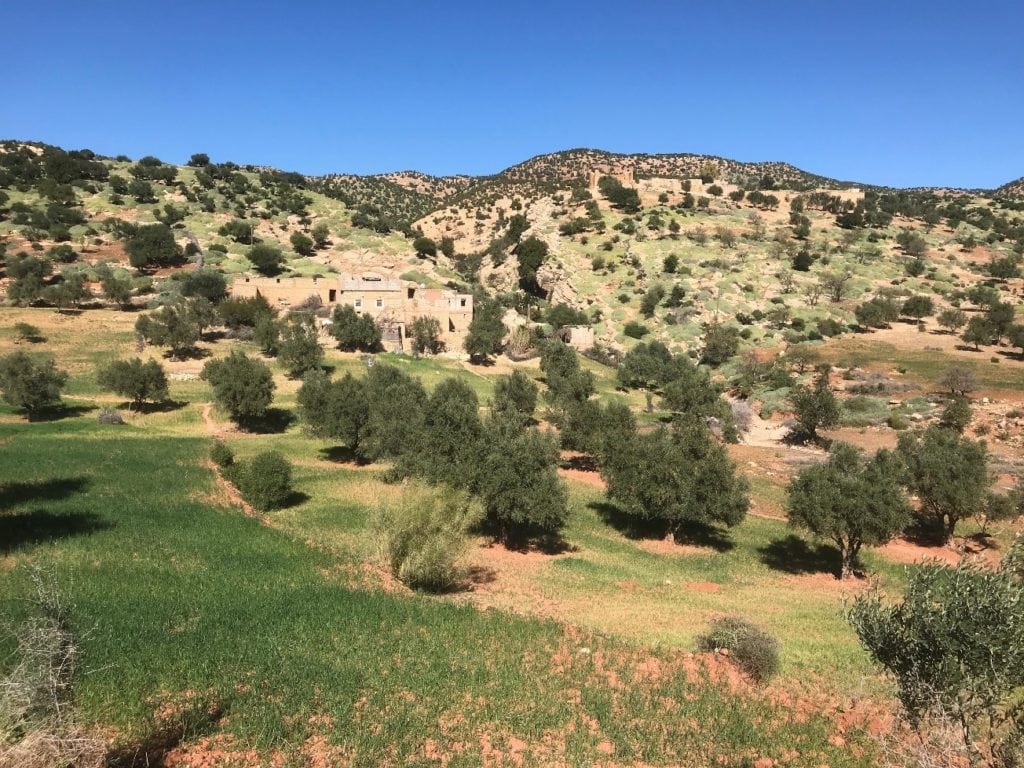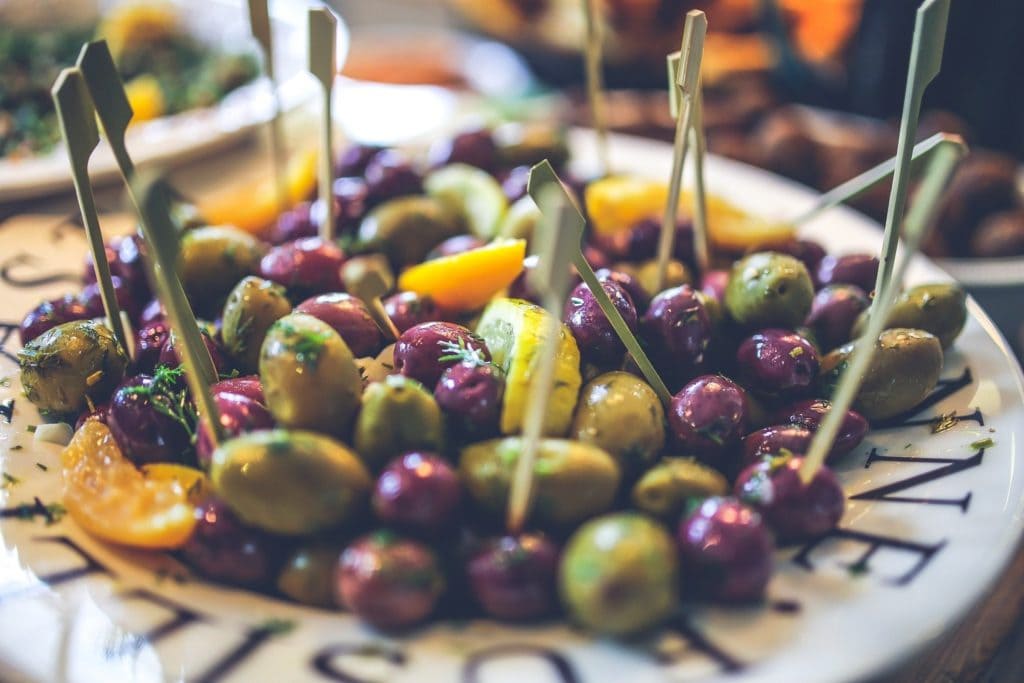Olive Oil Production May Have Key Role In A Hotter, Drier World

Summary
- New findings from Perugia University claim production of olive oil could play key role in sustainable agriculture.
- Olive Oil trees can sequester carbon from the atmosphere, support soil health, prevent erosion and enhance biodiversity.
- Morocco Gold Extra Virgin Olive Oil sets the gold standard for natural, sustainable agricultural methods. We plant new olive trees every year and are passionately committed to strengthening a sustainable UK-Morocco Business partnership.
Contents
- New Report Outlines How Olive Oil Production Can Support Agriculture Long Term
- Sustainability Of Extra Virgin Olive Oil Farming For The Future
- Extra Virgin Olive Oil Production Is Not Immune To Climate Change
- Morocco Gold Extra Virgin Olive Oil Production Puts Sustainability At Its Heart
New Report Outlines How Olive Oil Production Can Support Agriculture Long Term
Olive farming – the primary contributor to producing quality extra virgin olive oil – may play a critical role in the future of agriculture, according to experts.
According to a report in The Olive Oil Times, Olive trees can sequester carbon from the atmosphere, support soil health, prevent erosion and enhance biodiversity by providing natural habitats for numerous animal species.
Primo Proietti, the professor of agricultural and environmental sciences at the University of Perugia, Italy, told Olive Oil Times that the olive tree, some of its characteristics such as being drought-tolerant, still make it one of the best agricultural land uses.
“If we fail in curtailing greenhouse gas emissions, the rising temperatures on the planet’s surface will cause devastating impacts on agriculture, reduce productive areas and slash crop yields. According to the Food and Agricultural Organization of the United Nations (FAO), within the next 30 years, the global population will exceed nine billion. To respond to that, we need to increase food production by at least 50 percent, expanding the cultivated areas and the yields per hectare.”
Primo Proietti, University of Perugia, Italy
Sustainability Of Extra Virgin Olive Oil Farming For The Future

At Morocco Gold, we set the gold standard for natural, sustainable agricultural methods. We plant new olive trees every year, ensuring high quality extra virgin olive oil will be produced in this valley for centuries to come.
According to the new survey, consumers were most drawn to claims of products being ‘sustainably sourced’ and ‘conservation of natural resources’. Cargill said that labels such as ‘Fair Trade’ or ‘reduced packaging’ were given less weight in the purchasing decision.
As explained by The Olive Oil Times, sustainable agricultural practices, such as using cover crops, minimal tillage, and avoiding chemical pesticides and fertilizers in organic farming, can further enhance olive groves’ environmental benefits.
As coordinator of the European Union project Olive4Climate, Proietti and his team worked to evaluate the carbon balance in Italian, Greek and Israeli farms.
They found that, on average, producing one liter of extra virgin olive oil sequestered six kilograms of carbon dioxide compared with the 3.4 kilograms emitted during its production.
“By adopting environmentally sustainable cultivation models, olive oil can even have a negative carbon footprint,” Proietti said. “Olive growing can mitigate climate change since the carbon sequestration occurring in the olive grove system is greater than the emissions of the entire supply chain.”
“This is a result of significant environmental interest and can, therefore, have a considerable positive impact on consumer choices and can consequently generate significant added value for the oil,” he added.
Extra Virgin Olive Oil Production Is Not Immune To Climate Change
Climate change presents a looming threat to the production of extra virgin olive oil, putting at risk the intricate balance of weather patterns essential for the olive trees’ flourishing. To safeguard this valuable industry, it is imperative to explore and invest in innovative solutions such as drought-resistant olive varieties, advanced irrigation systems that conserve water, or scientifically informed crop management practices that adapt to shifting weather conditions.
Additionally, supporting local farmers through knowledge-sharing and subsidy programs can enable them to adopt more sustainable practices, thus ensuring the long-term viability of olive oil production in the face of climate adversity. It’s a collective endeavor that requires the cooperation of agricultural experts, policymakers, and the farming community to turn the tide against these climate-induced disruptions.
“The olive tree is a highly resilient tree,” Adriana Bruggeman, a researcher and associate professor at the Cyprus Institute, told Olive Oil Times. “When it comes to production, irrigation facilities, regulated access to water resources and sustainable practices can probably offer the olives good protection from events such as drought.”
“Climate change is causing both a decrease in rainfall during the summer (currently by 2.5 percent) and higher water consumption by plants due to increased evapotranspiration,” Proietti said.
That adds to more significant water loss from the soil through evaporation and transpiration due to rising temperatures, which increases irrigation needs.
Morocco Gold Extra Virgin Olive Oil Production Puts Sustainability At Its Heart
We at Morocco Gold extra virgin olive oil are passionately committed to strengthening a sustainable UK-Morocco Business partnership. We recently became members of the Scottish African Business Association (SABA) to learn more about the tremendous business opportunities opening up between Scotland and Africa.
Morocco Gold exemplifies natural, sustainable agricultural methods. With new olive trees planted annually, this remarkable valley will be producing high quality extra virgin olive oil for centuries to come. This extensive tree planting is also good for the environment and sustainable in the long term.
Morocco Gold is a natural, unfiltered, ultra-premium, polyphenol rich extra virgin olive oil. It’s exquisite taste and health enhancing qualities are guaranteed by our rigorous testing, provenance and authenticity, and strict adherence to single sourcing, with no blending or mixing.
As consumers in the UK and other markets are showing greater interest in healthy eating, lifestyles and wider wellbeing, provenance authenticity and high quality have become paramount. The exceptionally high quality of Morocco Gold extra virgin olive oil is the result of care and attention to detail throughout the entire production process.
The specific soil conditions of the Beni Mellal region, together with the mild winters and summers, caressed by hot winds from the Sahara, make ideal growing conditions for Morocco Gold olives. The existence of centenary trees and traditional presses (maasras) testify to the longevity of olive cultivation in this area.
